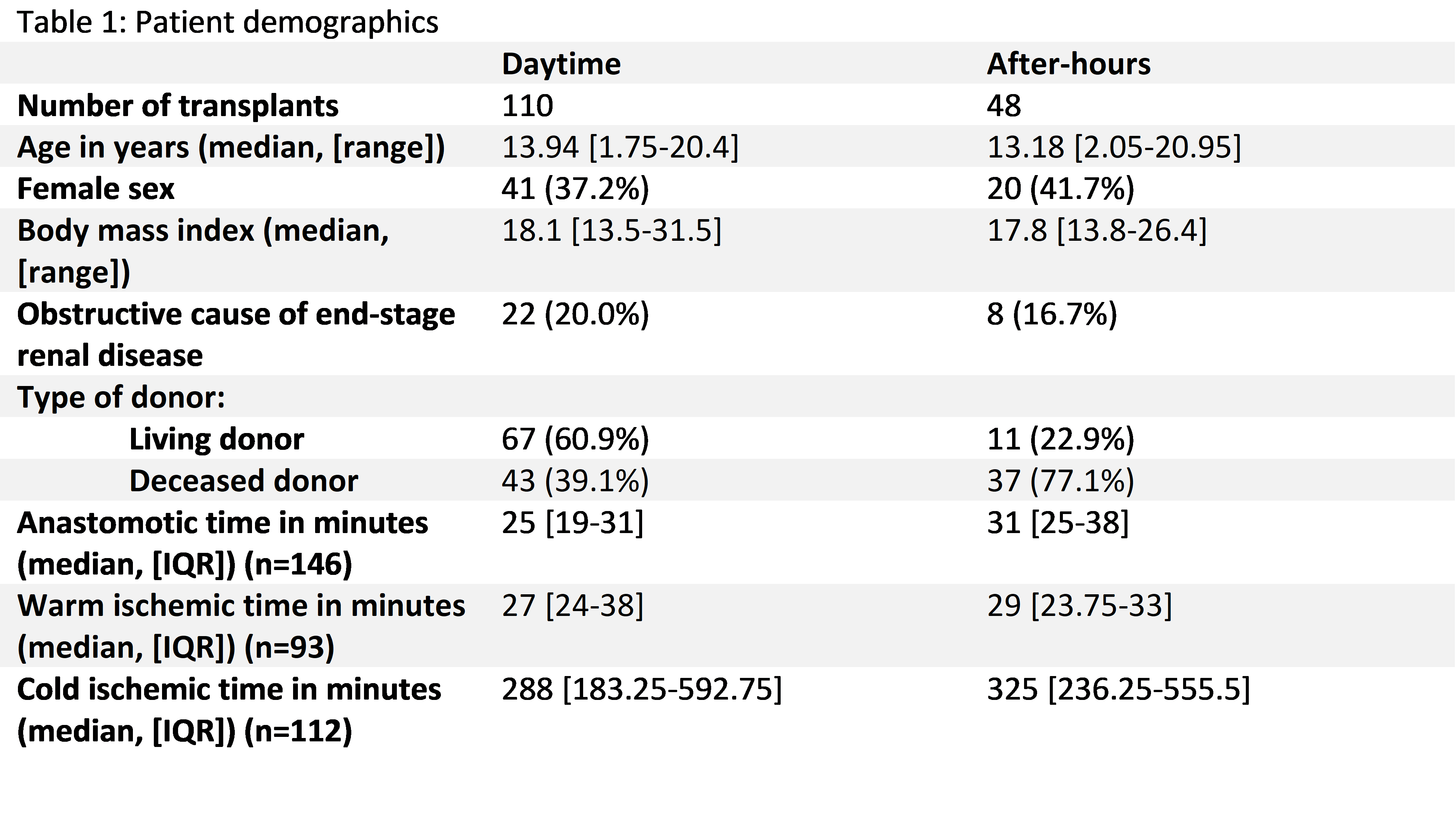After Hours Start Time Associated with Post-Operative Complications in the Pediatric Renal Transplant Population
Julie Wong, MD, Harshita Kour, MD, Cyrus Chehroudi, MD, Kourosh Afshar, MD, FRCSC.
University of British Columbia, Vancouver, BC, Canada.
BACKGROUND:
The unpredictable availability of donor organs generates unique scheduling dilemmas for solid organ transplant. Performing kidney transplants after-hours requires mobilizing extra hospital resources, as well as risking surgical team fatigue, for the presumed benefit of decreased cold ischemic time. Research in adult kidney transplantation has shown mixed evidence for poorer outcomes during nighttime surgeries. However, there has not been previous research in the pediatric space, where kidney transplants can be more technically challenging with intraabdominal implantation into major vessels. The objective of this study is to examine whether there is an association between commencing pediatric renal transplant surgeries after-hours and post-operative complications.
METHODS:
This is a retrospective single-centre review from a large quaternary children’s hospital for pediatric renal transplants between 2000 and 2019. Transplants were performed by urologists, with surgical assistance from pediatric cardiovascular surgeons when necessary. Post-operative complications included: delayed graft function or graft failure, vascular leak or stenosis or thrombosis, ureteric leak or stenosis, lymphocele, wound infection or dehiscence, and death. The incidence of surgical complications was correlated with several baseline factors through univariate then multivariate analyses. Multivariate analysis accounted for covariates known to impact graft function, like vascular anastomotic time and obstructive causes of end-stage renal disease (ESRD).
RESULTS:
We identified 158 kidney transplants. 48 (30.3%) started overnight between 17:00 and 07:00. Demographics of the daytime and after-hours population were similar (Table 1). 31 patients (19.6%) had post-operative complications (Table 2). Univariate analysis showed obstructive causes of ESRD and anastomotic time were associated with postoperative complications. Multivariate analysis using a stepwise logistic regression showed that performing the transplant after hours is associated with increased likelihood of postoperative complications (OR 2.98, 95% CI 1.22-7.28) after adjusting for other important covariates like obstructive causes of ESRD and anastomotic time.
CONCLUSIONS:
Our study showed a statistically significant increase in post-operative complications when pediatric kidney transplants were started after-hours as compared to those started during daytime hours, even after adjustment for other covariates. Given that this is the first such study in pediatric renal transplant, careful thought should be given to balance the harms and benefits of performing a transplant outside regular hours when the surgical team may be fatigued.


Back to 2023 Abstracts
